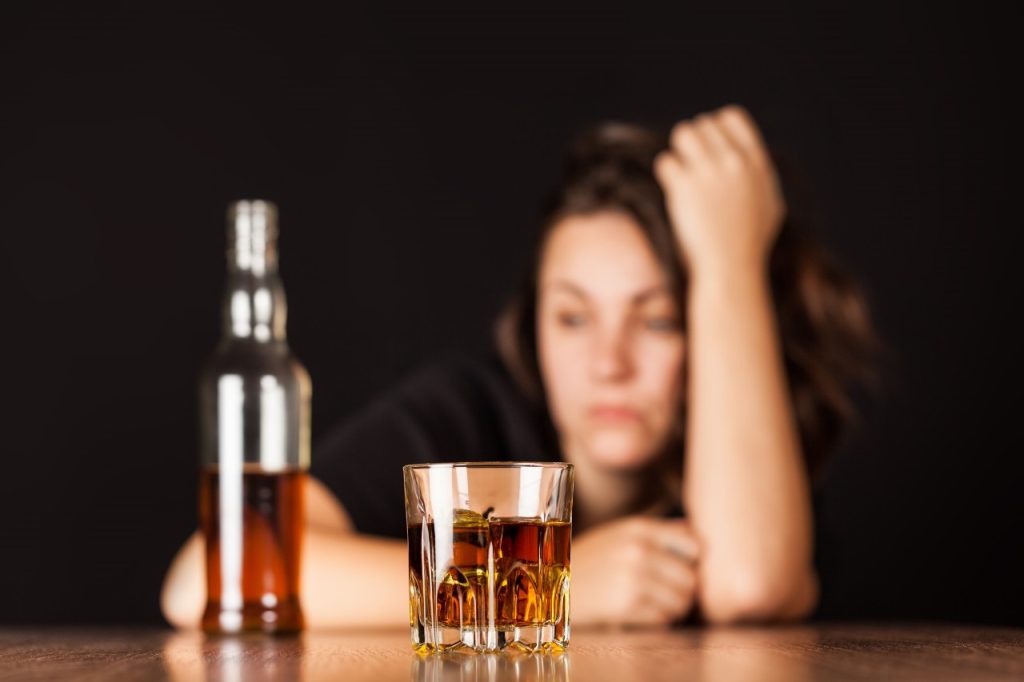For hundreds of years, it has always been part of the social norm to serve alcohol during parties, celebrations, or other social gatherings. Even today, alcohol is still one of the leading beverages served by party hosts and always sought by guests. That’s because many people believe that alcohol helps reduce social anxiety, which is prevalent among guests who aren’t so used to attending social activities.
Furthermore, drinking alcohol can add more fun to the party as it can alleviate stress, boost your moods, increase camaraderie, and lead to more spirited interactions. But despite the positive effects of alcohol, you’re also reminded to drink in moderation and always practice safe drinking. Otherwise, drinking for fun could soon lead to alcohol misuse problems.
Table of Contents
What Is Alcohol Abuse?
Alcohol abuse, otherwise known as alcohol misuse or alcohol addiction, is classified as a type of brain disease wherein a person can’t control their alcohol drinking habits anymore. This happens when a person drinks alcohol more frequently than necessary. Your brain will adapt to the substances of alcohol, making it harder for you to stop. Soon enough, this drinking habit can interfere with your work, relationships, and other aspects of your life.
Alcohol abuse, when not treated immediately, can cause a person to become dependent and alcoholic. You’ll find it almost impossible to go through a day without drinking. Some people also use alcohol to escape their problems and stress, which eventually leads to abuse. In worst cases, consuming too much alcohol in a day can cause alcohol poisoning and, ultimately, death.
How Do You Know When You’re Abusing Alcohol?
Many people love the unique sweetness and bitterness of alcohol. That’s why it’s often hard for some people to notice when they’re still drinking moderately or too much. But how can you tell if you’re already abusing the usage of alcohol?
For women, it’s considered alcohol abuse when you’re drinking seven drinks or more per week and more than three drinks during every occasion. Meanwhile, alcohol abuse for men is when you consume fourteen drinks in a week and take four drinks during special events. Alternatively, moderate drinking is limiting yourself to two drinks or less per day for men and one drink or less for women.
What Are The Symptoms Of Alcohol Abuse?
When there’s already a high alcohol content in your body, you may soon experience some alcohol abuse symptoms that can adversely affect your health like breathing problems, regular vomiting, illness, or in worst cases, coma or death.
Here are a few signs of alcohol abuse you need to watch out for:
- Hand shakiness and restlessness when you can’t drink
- Extreme anxiousness when you can’t drink in a day
- Failure to attend work or school due to drinking
- Inability to control your alcohol cravings
- Hiding alcohol in water bottles or other containers
- Increased tolerance of alcohol
- Canceling plans or quitting other activities just to make time for more drinking
- Failure to quit or stop drinking on your own
- Drinking before meeting with friends or going to work
- Memory gaps or blackouts after too much drinking
- Feeling depressed
- Drinking while driving or while doing other mundane activities (e.g., watching TV, cooking, walking)
- Tried cutting off only to go back into drinking after a day or two
Overall, alcohol abuse can affect your health and overall quality of life. Not only are you likely to suffer from liver cancer, cirrhosis, brain damage, and other health issues, but you’re also putting yourself at risk for deaths, injuries, or freak accidents due to intoxication. When you’re intoxicated, you’ll be unable to drive, much less walk or think properly. If you’re pregnant, alcohol abuse can also harm your baby’s health, or worse, cause abnormalities or death.
What Causes Alcohol Abuse?
People suffering from alcohol addiction may have different reasons for abusing alcohol. Some of these reasons are:
- Depression
- Loneliness
- Anxiety
- Self-doubt
- Low self-esteem
- Family history or family member with alcohol abuse
- Impulsiveness
- Peer pressure
- Easy access to alcohol
- Victim of any kind of abuse (mostly physical or sexual)
- Survivor of a certain trauma
- Drinking at a young age
- Coping mechanism for emotional and economic problems
People who’ve experienced one or more of these risk factors are more susceptible to alcohol addiction and dependency.
How To Diagnose Alcohol Abuse?
When you’re the one with alcohol addiction, it might be difficult to pinpoint your own condition or alcohol abuse unless someone else can apprise you about it. Most often, it’s your friends or family members in the house who’ll call you out with your drinking problems. Once you’re notified of your alcohol drinking problems or if you’re able to discover it on your own, it’s recommended that you consult a doctor for proper diagnosis.
To diagnose alcohol abuse, your doctor will ask you a series of questions about your drinking habits, family history, and frequency. They may also ask your friends and family separate questions to find out more about your relationships and how much damage has been done to your life due to your alcohol addiction. Lastly, they’ll conduct lab tests and physical exams to determine how much alcohol content is already affecting your health, especially to the most vulnerable parts like your brain, heart, liver, and nervous system.
Tips To Overcome Alcohol Abuse

Taking the first step towards overcoming alcohol abuse may be the hardest, but that doesn’t mean it’s impossible. Recovering from this addiction will take time, patience, and consistency. To help you start your journey towards alcohol addiction recovery, here are ten tips to help you overcome alcohol abuse and achieve your goal of having a healthier, happier, and alcohol-free life:
1. Acceptance
The most crucial step to overcoming alcohol abuse is accepting and recognizing that you have a drinking problem. People with drinking problems often tend to be in denial, especially when they firmly believe that their drinking habits are normal. Unfortunately, the more you deny and fail to recognize your alcohol addiction, the more difficult it’ll be to seek help. Remember, alcohol abuse is an illness that needs immediate treatment.
2. Seek Medical Help
Alcohol abuse may be a brain disease, but there’s no such thing as ‘cure’ for it wherein you can drink something to help you fully recover. However, you can still seek medical help from your trusted doctor, and they may prescribe you some medications which can help reduce your alcohol cravings. Some of these are:
- Acamprosate (Campral) – to fight off alcohol cravings
- Disulfiram (Antabuse) – bring unpleasant physical effects when you try to drink alcohol (e.g., vomiting, headache, chest pain, heavy sweating)
- Naltrexone (Revia) – to reduce cravings and euphoric effects from alcohol
Confer with your doctor first before taking these medications and only take them as prescribed.
3. Go On An Alcohol Detox
Alcohol detoxification isn’t a treatment against alcohol addiction. Rather, it’s a process to help you quit drinking and give your body enough time to recover and take all alcohol content out of your system. However, many people fear going through alcohol detox due to its expected withdrawal symptoms.
Your withdrawal symptoms may vary depending on how severe your addiction is. If you’re worried about the possible withdrawal symptoms you may experience, don’t hesitate to consult your doctor so they can recommend you some treatment options against alcohol withdrawal such as therapy, medications, or nutritional support.
Meanwhile, there are two ways you can go through an alcohol detox:
- Inpatient Detox
This option is recommended for people who’ve been abusing alcohol heavily for several years. In this process, you’ll be required to stay inside a hospital, clinic, rehab, or detox center. This way, the healthcare professionals and nurses can monitor you full-time while guiding you in surviving alcohol withdrawal symptoms. They may also require you to attend intensive therapy sessions to help you understand and learn about your addiction while sharing your experiences with them.
- Outpatient Detox
This may be suitable for people with mild alcohol addiction. During the day, you’ll be required to visit your doctor for treatment. Then, you can go home and do your self-detox while recording your progress and giving feedback to your health provider.
4. Consult A Counselor or Therapist
As mentioned, some people use alcohol as their coping mechanism against stress, anxiety, or other emotional or economic problems. Overcoming alcohol abuse can be difficult, especially if your mind has already adjusted to the habit of using alcohol as a reliever. Thus, as part of your journey to recovery, it’s recommended that you consult a professional therapist for counseling. Your therapist will help you understand the reasons behind your alcohol addiction and overcome them.
Every addiction story will be different for each patient, which means you’ll need a personalized treatment program that suits the reason behind your addiction. Within this program, there’ll be different coping strategies and other techniques to help you quit drinking alcohol and stay sober for a lifetime. For example, if you’re using alcohol to relieve social anxiety, they’ll help you find other alternatives to reduce social anxiety that doesn’t involve alcohol.
If your addiction is mild, you may only need to attend a few short counseling sessions. Meanwhile, if your alcohol abuse is severe, you may be required to participate in one-on-one therapy sessions that last for weeks or even months. You may also need to attend family or couples therapy, especially if your addiction has adversely affected your relationships.
5. Ask Support From Friends And Family
Aside from seeking help from your doctor, therapist, and other healthcare professionals, make sure you also involve your family and friends and inform them about your journey to alcohol recovery. This is important, especially if some of them are active drinkers. The last thing you want is for your own family to be drinking in front of you, which could trigger you into relapse. So, make it clear to everyone that you’re no longer drinking and you’re on your way to staying sober.
6. Establish Healthy Habits
Giving up alcohol will require hard work and persistence, including your willingness to switch to a healthier and sober lifestyle. You can establish healthy habits like:
- Eating healthy
- Exercising or engaging in regular physical activities
- Managing your stress in a healthy way
- Getting enough sleep
Incorporating these healthy habits will help speed up your recovery and make you realize that there’s more to life than drinking alcohol. A healthy lifestyle will also help boost your self-esteem, especially for people using alcohol to cope with their self-esteem issues.
7. Join A Support Group
Sometimes, during your alcohol treatment, you can’t help but feel alone, especially when you get used to drinking alcohol to manage your loneliness. One way to overpower this is by joining support groups. A support group isn’t necessarily led by a doctor or therapist. Most of the time, it’s led by people who’ve recovered or are still recovering from alcohol abuse. Participating in their group sessions will make you feel less lonely but more understood.
These people have been through the same thing as you had and they can offer you tips and advice from their own experiences. Furthermore, you can also try joining an inpatient rehab program from New Vista Health so you’ll have a safe and non-judgmental space to talk about the struggles and challenges you may have during your journey to recovery.
8. Eliminate Triggers
If you’ve only just started your treatment, chances are you still get easily triggered when you find anything that reminds you of alcohol. So, ask for help from your friends or family to get rid of any alcohol inside your house or anything that relates to it. Make sure they don’t give you any access to alcohol to avoid triggering your cravings.
Furthermore, if your usual route to work or school tends to pass by a liquor store or bar, create a plan on how you can avoid these places. For instance, find another route or street with no liquor stores to ensure you don’t get tempted to visit and have a drink.
9. Be Persistent Against Temptation And Peer Pressure
It’s common for people trying to stay sober to experience setbacks, strong temptations, and peer pressure. But remind yourself that you’re the only one in control of the success of your treatment and recovery. So, always be persistent against temptations and peer pressure.
If you’re surrounded by friends or co-workers who always offer you to drink despite knowing that you’re recovering, it’s best to cut them off for good and stay away. If certain places or holidays remind you of alcohol and stir up your cravings, create a plan to overcome them in advance.
10. Revisit Your Old Hobbies Or Passion
During your alcohol addiction days, you probably forgot about your hobbies or passions since alcohol has corrupted your entire life. Perhaps there were times when you gave up on doing the things you used to enjoy so that you could have more time for drinking.
Now that you’re recovering, you can keep yourself busy by cultivating new hobbies or revisiting your old passion. You can play sports, do something creative, or play an instrument. These activities are excellent alternatives to drinking.
Take-Home Message
There’s no exact timeframe on when you’ll fully recover from your alcohol addiction. Recovery can take time, and it varies from each person’s severity of addiction and commitment towards their treatments. So, bear these tips in mind and seek help overcoming alcohol abuse. If you find yourself in relapse again, don’t think of it as a failure. Instead, it’s part of the recovery process and a chance to recommit to sobriety.




